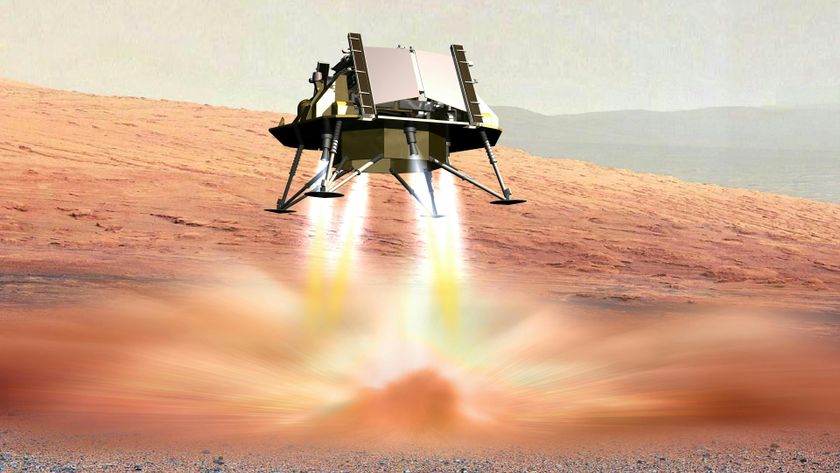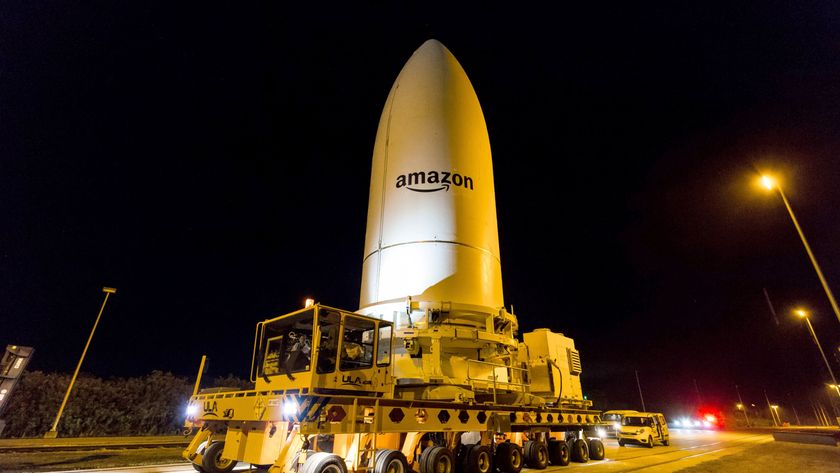New U.S. Space Policy to Emphasize Cooperation

The White House is expected to unveil a newU.S. space policy June 28 that emphasizes international cooperation andcommercial space.
?This policy seeks to strengthen our domesticcommercial space industry and reestablish U.S. leadership in the internationalcommunity,? states a one-page summaryof the policy obtained by Space News.
The June 25 document ? ?NationalSpace Policy Top-Level Messages? ? was created by Peter Marquez, directorof space policy for the White House National Security Council.
?The United States,? the document says,?considers the sustainability, stability, and free access to, and use of, spacevital to its national interests. [FAQ:NASA's New Direction]
?It is the shared interest of all nations toact responsibly in ways that emphasize openness and transparency, and helpprevent mishaps, misperceptions, and mistrust.?
The document also says, ?A robust andcompetitive commercialspace sector is vital to continued progress in space.
?The United States is committed toencouraging and facilitating the growth of a U.S. commercial space sector thatsupports U.S. needs, is globally competitive, and advances U.S. leadership inthe generation of new markets and innovative entrepreneurship.?
Get the Space.com Newsletter
Breaking space news, the latest updates on rocket launches, skywatching events and more!
One of the specific goals of the new policy,according to the summary document, is making the U.S. space industry morecompetitive in global aerospace and technology markets, including ?satellitemanufacturing, satellite-based services, space-launch terrestrial applicationsand increased entrepreneurship.?
The new policy also calls for expanded internationalcooperation in the peaceful use of space and the promotion of safe andresponsible operations through improved data collection and sharing aimed atavoiding in-space collisions, protecting critical space and ground systems andmitigating orbital debris.
Other stated goals include:
- ?Increase assurance and resilience of mission-essential functions enabled by commercial, civil, scientific, and national security spacecraft and supporting infrastructure.
- ?Pursue human and robotic initiatives to develop innovative technologies, strengthen international partnerships, inspire our Nation and the world, increase humanity?s understanding of the Earth, enhance scientific discovery, and explore the solar system and the universe beyond.
- ?Improve space-based Earth and solar observation capabilities needed to conduct science, forecast terrestrial and near-Earth space weather, monitor climate and global change, manage natural resources, and support disaster response and recovery.?
The White House is expected to formallyunveil the policy June 28, according to government sources.
- Misconceptions Swirl Around Obama Space Plan
- NASA's New Direction: FAQ
- U.S. Lawmakers Call for Immediate Action on Heavy-Lift Rocket
SpaceNews, dedicated to covering all aspects of the space industry.
Join our Space Forums to keep talking space on the latest missions, night sky and more! And if you have a news tip, correction or comment, let us know at: community@space.com.
Amy Klamper is a space reporter and former staff writer for the space industry news publication SpaceNews. From 2004 to 2010, Amy covered U.S. space policy, NASA and space industry professionals for SpaceNews. Her stories included profiles on major players in the space industry, space policy work in the U.S. Senate and House of Representatives, as well as national policy set by the White House.










